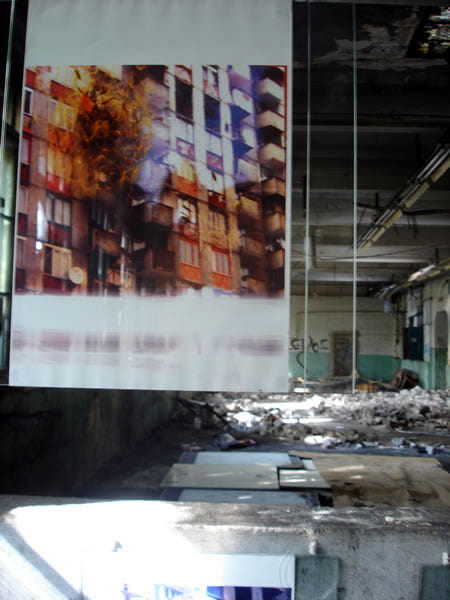
Not Working
[16 Second art]
The word “school” comes from the Greek skhole, which means both “lecture” and “leisure.” So there was a time when “spare time,” play, and leisure were not on the other side of the cultural divide from working and schooling.
Here I am, in California in the the land of work ethics and enforced hedonism, writing my lecture on obscenity and eccentricity, shaping my thoughts into the “Times” font. They have to fit into the allotted time-space capsule: no more than thirty minutes–already a luxury in our multitasking world. And then I have to contribute something to the discussion of “cultural labor” about which I know very little. The text begins to spill out, I contain it, expanding the outtakes, bolding the definitions. But my mind wanders and gets distracted. I notice short shadows of a Californian afternoon that remind me of Benjamin’s unfinished fragment. Short shadows are “no more than the sharp black edges at the feet of things, preparing to retreat silently, unnoticed, into their burrow, their secret being.” They make us aware of thresholds, contours, and afterimages. I no longer shape my thoughts into lines but look at the lines through my half-full glass of non-sparkling water, capturing fleeing sunbeams. I observe the instance when the parallel lines of the text just barely refract into a non-Euclidian space. My text is no longer spilling anywhere, rather I am spilling water on the keyboard, risking technological disaster. “Hey, what are you doing?” my American friend asks me. “I think you are not working.”
One thing technological gadgets are not supposed to do is to catch each other unawares, with compromising exposures and unpredictable troubleshooting. I photograph my computer screen with my digital camera, creating an alchemy of cross-purpose. I use “the multiburst” mode intended to capture achievements in sport. The water lights up like fire. My lecture is still not ready, but the photo is, a testimony to the detour from lecture to leisure. I enhance the image, crop it and then “revert to the original,” losing all labor-intensive changes in the process. I’m hardly working.
It is tempting to write a nostalgic narrative of loss: homo ludens becomes homo faber and later a mere animal laborans. But one should not be seduced by stories of the Fall. What if all the three beasts, the player, the maker, and the laborer, cohabit our bodies and minds? Maybe our cultural labor of teachers and writers is not merely the laborious production of published goods. We cling to the utopian hope that cultural labor exceeds itself by being also a form of action, communication, co-creation, contribution to some collective open-ended work-in-progress. The technology of cultural labor is not a mere prosthesis of progress but a framework to be explored and deviated from. Only the eccentric sidemove offers an encounter with the ordinary marvelous. Estrangement is never to be fully overcome, like wonder.
[To appear in the Journal of Cultural Semiotics, UK (Special Issue on Cultural Labor).]
